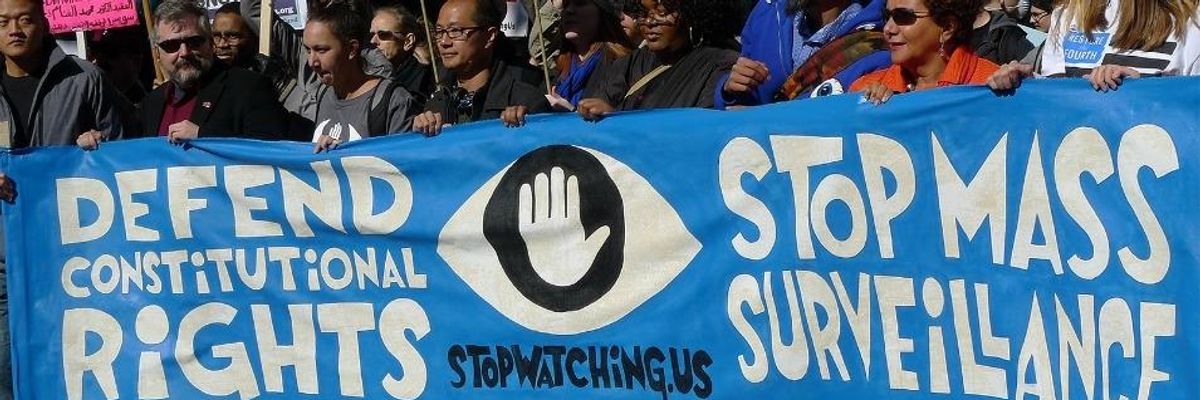The Trump administration recently used one of the most controversial surveillance provisions in U.S. history to record an unidentified person or group's visit to an unspecified website, the New York Times revealed Thursday.
"The DNI's amended letter raises all kinds of new questions, including whether, in this particular case, the government has taken steps to avoid collecting Americans' web browsing information."
--Sen. Ron Wyden
The Times reports Director of National Intelligence John Ratcliffe wrote to Sen. Ron Wyden (D-Ore.) on November 6 to inform him that Section 215 of the USA PATRIOT Act had not been used to collect internet search terms, and that none of the 61 Foreign Intelligence Surveillance Court orders issued in 2019 involved "web browsing" records.
However, Ratcliffe was later forced to change his story.
Under pressure from the Times and following clarification from the U.S. Justice Department, Ratcliffe wrote to Wyden to admit that "one of those 61 orders resulted in the production of information that could be characterized as information regarding browsing," and that one order approved the collection of data regarding computers "in a specified foreign country" that were used to visit "a single, identified U.S. web page."
Wyden responded to Ratcliffe's clarification--the director called it a "corrective action"--by urging Congress to enact more robust privacy protections.
"The DNI's amended letter raises all kinds of new questions, including whether, in this particular case, the government has taken steps to avoid collecting Americans' web browsing information," Wyden said in a statement on Thursday.
"More generally, the DNI has provided no guarantee that the government wouldn't use the PATRIOT Act to intentionally collect Americans' web browsing information in the future, which is why Congress must pass the warrant requirement that has already received support from a bipartisan majority in the Senate."
Section 215, which was passed in the fear-filled days following the September 11, 2001 attacks on the United States, weakened protections put in place in 1978 with the enactment of the Foreign Intelligence Surveillance Act (FISA), which was meant to correct the most egregious and illegal surveillance revealed by the Church Committee.
Armed with what privacy advocates have called flagrantly unconstitutional surveillance powers, "the executive branch has been in nearly constant violation of FISA and the rules governing surveillance since [9/11], and during this time, it has warrantlessly collected information on virtually every American," according to Demand Progress. The group explains that:
Section 215 expanded a provision of FISA to provide the government with broad authority to collect vast swaths of records held by businesses--including in the absence of any allegation of wrongdoing. These records reveal personal details about people's lives, like whom they call, when, and for how long.
Section 215 orders also apply to people's purchase records, which reveal what people buy, when, and where. Location, medical, and firearms sales records are among the other digital and physical things subject to Section 215.
During the George W. Bush administration, Section 215's authorization of the collection of library records sparked widespread national outrage. Later, during the administration of President Barack Obama, National Security Agency whistleblower Edward Snowden revealed that Section 215 was being used to enable the bulk metadata collection of every U.S. phone call.
Snowden's revelations prompted Congress to limit such collection by passing the USA FREEDOM Act in 2015.
Section 215 expired in March 2020. In May, the Senate voted to reauthorize the FREEDOM Act. However the bill is currently stalled pending reconciliation with the House.




